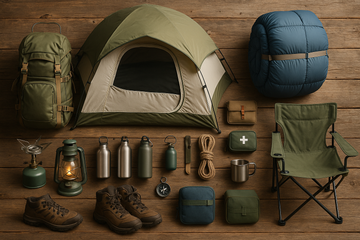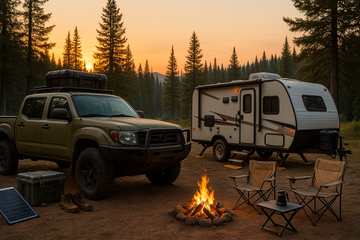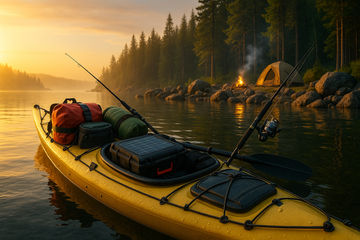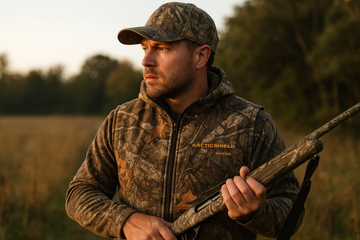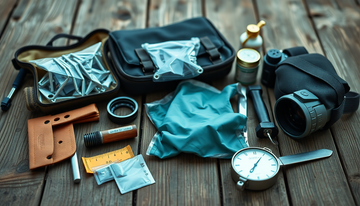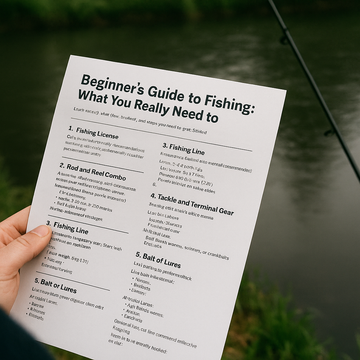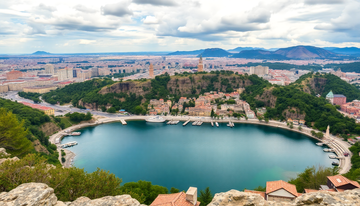Introduction
As we move further into 2025, the world continues to present challenges that test our resilience and adaptability. The rise of natural disasters, social upheavals, and economic uncertainty has led many to explore the survivalist path—not merely as a hobby, but as a lifestyle. This article will delve into the essential skills that every modern survivalist should acquire and the mindset needed to thrive in an unpredictable environment.
The Evolution of Survivalism
Survivalism has evolved significantly over the years. What once was seen as a fringe movement has now become a practical necessity for many. The modern survivalist understands that preparation goes beyond just hoarding supplies; it encompasses a holistic approach to self-sufficiency, focusing on skills, knowledge, and community.
Essential Skills for Modern Survivalists
To navigate the complexities of survivalism in 2025, individuals must develop a diverse set of skills. Below are some of the most critical areas to focus on:
-
Food Procurement: Understanding how to hunt, fish, forage, and cultivate your own food is essential for long-term survival. Here are some skills to master:
- Hunting Techniques: Familiarize yourself with local wildlife and ethical hunting practices.
- Fishing Skills: Learn various fishing methods, including fly fishing and trapping.
- Foraging: Study local edible plants and mushrooms to supplement your diet.
- Gardening: Develop skills in organic gardening and permaculture to create sustainable food sources.
-
Water Management: Water is life, and knowing how to find, purify, and store it is crucial. Key skills include:
- Finding Water Sources: Learn to identify natural water sources in your environment.
- Purification Techniques: Master methods such as boiling, filtration, and chemical purification.
- Rainwater Harvesting: Set up systems to collect and store rainwater.
-
First Aid and Medical Skills: Medical emergencies can happen at any time. Basic first aid training can be a lifesaver. Key areas include:
- CPR and Basic Life Support: Learn how to perform CPR and use an AED.
- Wound Care: Understand how to treat cuts, burns, and other injuries.
- Herbal Medicine: Explore the use of local plants for medicinal purposes.
-
Navigation and Land Skills: Being lost can be a dangerous situation. Develop skills in:
- Map Reading: Understand how to read topographical maps.
- Compass Use: Learn how to use a compass effectively.
- Land Navigation: Become familiar with natural navigation techniques using the sun and stars.
-
Self-Defense: In uncertain times, knowing how to protect yourself and your loved ones is crucial. Skills to consider include:
- Martial Arts Training: Explore self-defense techniques through martial arts classes.
- Situational Awareness: Learn to recognize potential threats in your environment.
- Non-Lethal Defense: Understand the use of pepper spray, personal alarms, and other non-lethal self-defense tools.
-
Firecraft: Fire is essential for warmth, cooking, and signaling for help. Key skills include:
- Fire-Making Techniques: Master various methods such as friction, flint and steel, and modern fire starters.
- Fire Safety: Learn how to safely manage and extinguish fires.
- Cooking over Fire: Acquire skills for cooking and preparing food outdoors.
The Importance of Mental Resilience
While practical skills are essential, the mental aspect of survivalism cannot be overlooked. The right mindset can make a significant difference in how you respond to crises. Here are key components of a resilient survivalist mindset:
- Adaptability: The ability to pivot and adjust to changing circumstances is crucial. A flexible mindset can help you find creative solutions to unexpected challenges.
- Resourcefulness: In survival situations, being able to think outside the box can be a lifesaver. Learn to utilize available resources creatively, whether it’s repurposing materials or improvising tools.
- Preparedness: Regularly reviewing and updating your survival plans, supplies, and skills can keep you ready for any eventuality. Create checklists for supplies, and practice drills with your family.
- Community Engagement: Building a network with fellow survivalists fosters knowledge sharing and support. Engage in local survivalist groups, attend workshops, and share resources.
- Continuous Learning: The survival landscape is always evolving. Stay informed about new techniques, tools, and strategies through workshops, literature, and online courses.
Building a Survival Kit
A well-equipped survival kit is fundamental for any survivalist. Here are essential items to include in your kit:
- Water Purification Supplies: Filters, purification tablets, and a portable water container.
- First Aid Supplies: A well-stocked first aid kit with bandages, antiseptics, and medications.
- Food Supplies: Non-perishable food items, energy bars, and a portable cooking system.
- Fire-Making Tools: Lighters, waterproof matches, and fire starters.
- Navigation Tools: A compass, maps of your local area, and a GPS device.
- Multi-Tool or Knife: A versatile tool for various tasks.
- Emergency Shelter: A tarp, emergency blanket, or a portable tent.
- Clothing and Footwear: Weather-appropriate clothing and sturdy boots.
- Self-Defense Items: Pepper spray, personal alarms, or a tactical flashlight.
Conclusion
Embracing the survivalist path in 2025 requires a proactive and holistic approach to both skills and mindset. By developing essential skills, nurturing a resilient mindset, and building a comprehensive survival kit, modern survivalists can not only prepare for emergencies but also lead empowered, self-sufficient lives. Remember, survivalism is a journey of lifelong learning and adaptation, so start today and equip yourself for whatever lies ahead. Your future self will thank you for the efforts you put in now.
